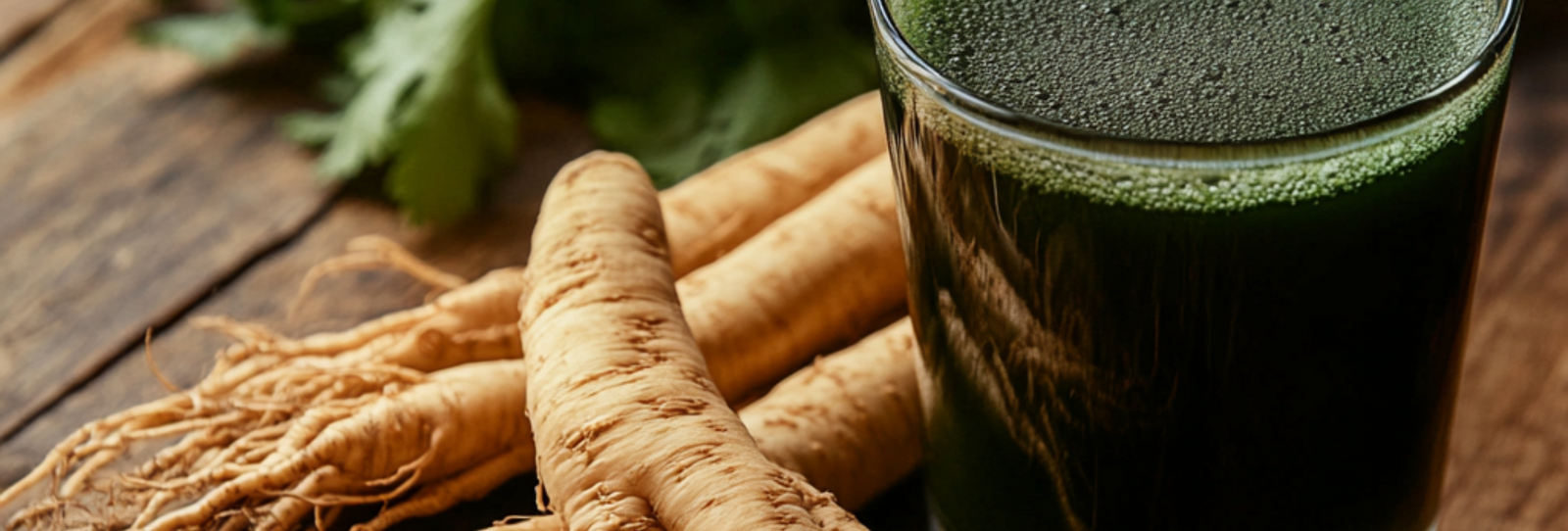
by Erika Albertini, PT, DPT August 16, 2024 9 min read
Ginseng is one of the most revered herbs in traditional medicine, particularly in Asian cultures. Its roots have been used for thousands of years to promote health and well-being. But what exactly makes ginseng so unique? In this blog, we will delve deep into the benefits of ginseng, exploring its impact on your body and mind. Whether new to this herbal remedy or a long-time user, you'll discover something valuable about ginseng's powerful effects and how to best incorporate it into your daily diet.
Ginseng, a popular herbal remedy, has been cherished for its medicinal properties for centuries. Known for its unique, fork-shaped root, ginseng is a perennial plant that grows in North America and eastern Asia, primarily in cooler climates. It has become synonymous with vitality and health, often touted as a cure-all for various ailments.
Ginseng's history dates back over 5,000 years in China, where it was considered a tonic capable of increasing energy, improving mental clarity, and promoting longevity. Traditional Chinese Medicine (TCM) regards ginseng as a potent "adaptogen," meaning it helps the body resist stress and stressors of all kinds. Its use eventually spread to Korea, Japan, and North America, with each culture adopting and adapting ginseng into their traditional medicinal practices.

Ginseng isn't just one type of plant; it comes in various forms, each with distinct characteristics and health benefits.
Asian ginseng, also known as Korean or Chinese ginseng, is the most well-known type. It is typically used to enhance energy levels, improve cognitive function, and promote general well-being. Asian ginseng is often considered the most potent and is frequently used in traditional remedies.
American ginseng is native to the United States and Canada. It is generally milder than its Asian counterpart and is often used to support the immune system and reduce stress. American ginseng is also noted for its cooling properties, making it a popular choice for those looking to balance their body temperature.
Despite its namesake, Siberian ginseng doesn’t belong to the same botanical family but shares similar properties with the Panax species. This herb was often used in TCM as part of tonics to combat fatigue, alleviate pain, and strengthen the body. Siberian ginseng is prized for enhancing overall well-being and boosting energy and vitality, making it a key ingredient in many herbal formulations to revitalize the body.

Ginseng's magic lies in its active compounds, which are responsible for its wide range of health benefits.
Ginsenosides are the primary active compounds found in ginseng. These saponins are believed to have a broad spectrum of pharmacological effects, including anti-inflammatory, antioxidant, and anti-cancer properties. Ginsenosides are also responsible for ginseng’s adaptogenic effects, helping the body cope with stress and fatigue.
Polysaccharides found in ginseng contribute to its immune-boosting properties. These complex carbohydrates help modulate the immune system, enhancing the body’s ability to fight off infections and diseases.
The primary active compounds in Siberian Ginseng are Eleutherosides B and E. These chemical compounds have been shown to possess an extensive range of benefits, including fighting stress, reducing oxidative damage, combating gastric ulcers, and reducing inflammation. Eleutherosides also have immunomodulating properties, helping to balance and enhance the immune system's response.
Ginseng is renowned for its diverse range of health benefits, supported by both traditional use and modern scientific research.
One of the most popular uses of ginseng is as a natural energy booster. Unlike caffeine, which can cause jitteriness and a subsequent crash, ginseng provides a more balanced increase in energy.
Ginseng enhances cell efficiency, helping them produce energy more effectively. It also supports adrenal function, crucial for maintaining energy levels throughout the day.
While caffeine stimulates the nervous system, ginseng works on a cellular level to improve energy production. This makes it an excellent choice for those who want to avoid the downsides of caffeine, such as anxiety and energy crashes.
Ginseng is also celebrated for its ability to enhance brain function, making it a popular choice for students, professionals, and older adults.
Research has shown that ginseng can improve memory, learning, and overall cognitive performance. It effectively reduces mental fatigue and improves focus, making it a valuable ally during intense mental activity.
Ginseng’s neuroprotective properties help protect the brain from damage caused by free radicals and inflammation. This can be especially beneficial in preventing age-related cognitive decline and conditions such as Alzheimer’s disease.

Your immune system is your body’s first line of defense against illnesses, and ginseng can significantly boost it.
Ginseng has been shown to enhance the immune response by increasing the production of immune cells and improving their function. A study found that healthy people taking Siberian ginseng for four weeks had more T-cells, which may indicate their immune systems were stronger.
Ginseng and Cold/Flu Prevention
Regular use of ginseng has been linked to a reduced risk of colds and flu. It helps your body fight off viruses more effectively and can even reduce the severity and duration of symptoms if you do get sick. This makes it an excellent supplement during flu season or when you feel run down.
Chronic inflammation is at the root of many health issues, including heart disease, diabetes, and cancer. Ginseng’s anti-inflammatory properties make it a powerful tool in combating these conditions.
Ginsenosides in ginseng have been shown to inhibit the production of inflammatory cytokines, reducing inflammation throughout the body. This can help alleviate symptoms of chronic inflammatory conditions like arthritis.
By reducing inflammation, ginseng may help manage chronic conditions such as rheumatoid arthritis, cardiovascular disease, and even some types of cancer. Its anti-inflammatory effects also contribute to overall longevity and well-being.
For those dealing with diabetes or insulin resistance, ginseng can be a natural way to help manage blood sugar levels.
Ginseng has been shown to improve insulin sensitivity, helping your body use glucose more effectively. This can lead to more stable blood sugar levels and reduce the risk of developing type 2 diabetes.
Ginseng can help regulate blood sugar levels and reduce the need for medication for those already managing diabetes. In particular, Siberian ginseng intake has been found to significantly lower fasting and postprandial blood sugar levels and improve glucose metabolism in type 2 diabetes patients. However, it’s important to consult with a healthcare provider before adding ginseng to your regimen.
Ginseng has long been used as a natural remedy for improving sexual health and treating conditions like erectile dysfunction.
Ginseng is believed to increase libido by promoting the production of sex hormones and improving blood flow to sexual organs. This makes it a popular natural aphrodisiac.
Studies have shown that ginseng can be effective in treating erectile dysfunction. It works by increasing nitric oxide production, which improves blood flow and helps achieve and maintain an erection.

While ginseng is generally safe for most people, it’s important to know about potential side effects and medication interactions.
Some people may experience side effects such as headaches, digestive issues, or sleep disturbances when taking ginseng. These effects are usually mild and go away with time.
While ginseng is generally safe for most people, it’s crucial to be aware of possible interactions, especially if taking certain medications. If you are being treated with blood thinners like aspirin, warfarin (Coumadin), or clopidogrel (Plavix), ginseng may increase your risk of bleeding. It can also interact with corticosteroids, such as prednisone, and raise blood levels of digoxin, a medication used for heart conditions, increasing the risk of side effects.
Additionally, ginseng may lower blood sugar levels, posing a risk of hypoglycemia, especially if you are on diabetes medications. Those taking lithium should exercise caution, as ginseng may hinder the body's ability to eliminate this medication, potentially leading to dangerously high levels. Ginseng may also interact with drugs that suppress the immune system, sedatives, and other medications metabolized by the liver. Always consult your healthcare provider before incorporating ginseng into your routine if you are on any medications.
Adding ginseng to your daily routine is easy, thanks to the variety of products available.
Ginseng supplements are widely available in various forms, including capsules, powders, and extracts. These are a convenient way to get your daily dose of ginseng without needing preparation.
For those who prefer herbal powders, Siberian ginseng can be taken in doses of 0.5 to 2 grams up to 3 times a day or as your herbal practitioner recommends. This form allows for easy mixing into your daily routine.
If you prefer tinctures, Siberian ginseng can be taken in doses of 1-5 ml up to 3 times per day or as recommended by your herbal practitioner. Tinctures are versatile and can be added to water, tea, or other beverages.
Another great way to incorporate ginseng into your diet is through super greens powders that contain ginseng. These can easily be added to your drinks, smoothies, or recipes like oatmeal, cookies, or yogurt for an extra health boost.
Rewind Super Greens is a premium super greens powder that undergoes third-party testing to ensure quality and consistency. It offers a delicious way to incorporate ginseng and other beneficial nutrients into your daily diet, making it a convenient and tasty option for boosting your overall health.

Ginseng is a powerful herb with a wide range of health benefits, from boosting energy and cognitive function to supporting the immune system and reducing inflammation. Whether you want to improve your overall health or address specific issues, incorporating ginseng into your routine could be a game-changer. As with any supplement, using ginseng responsibly and consulting with a healthcare provider if you have any concerns is essential.
Riaz, M., Rahman, N., Zia‐ul‐Haq, M., Jaffar, H., & Manea, R. (2019).Ginseng: A dietary supplement as immune-modulator in various diseases. Trends in Food Science & Technology.
Shergis, J., Zhang, A., Zhou, W., & Xue, C. (2013).Panax ginseng in Randomised Controlled Trials: A Systematic Review. Phytotherapy Research, 27.
Patel, S., & Rauf, A. (2017).Adaptogenic herb ginseng (Panax) as medical food: Status quo and future prospects. Biomedicine & pharmacotherapy = Biomedecine & pharmacotherapie, 85, 120-127.
Hwang, J., Lee, B., & Yook, S. (2019).Health Promoting Effects of Red Ginseng Intake: A Systematic Review(P23-008-19).Current developments in nutrition, 3 Suppl 1.
Szczuka, D., Nowak, A., Zakłos-Szyda, M., Kochan, E., Szymańska, G., Motyl, I., & Błasiak, J. (2019).American Ginseng (Panax quinquefolium L.) as a Source of Bioactive Phytochemicals with Pro-Health Properties.Nutrients, 11.
Kim JH, Yi YS, Kim MY, Cho JY.Role of ginsenosides, the main active components ofPanax ginseng, in inflammatory responses and diseases. J Ginseng Res. 2017 Oct;41(4):435-443. doi: 10.1016/j.jgr.2016.08.004. Epub 2016 Aug 18. PMID: 29021688; PMCID: PMC5628327.
Freye, E., & Gleske, J. (2013).Siberian Ginseng Results in Beneficial Effects on Glucose Metabolism in Diabetes Type 2 Patients: A Double Blind Placebo-Controlled Study in Comparison to Panax Ginseng., 1, 11-17. https://doi.org/10.12691/IJCN-1-1-2.
Roxas M, Jurenka J. Colds and influenza: a review of diagnosis and conventional, botanical, and nutritional considerations.Altern Med Rev. 2007 Mar;12(1):25-48. Review.
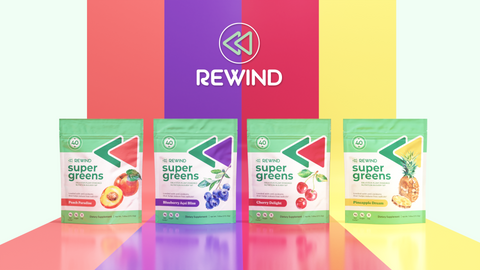
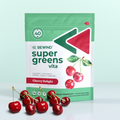
Cherry Delight Vita
$49.99
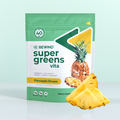
Pineapple Dream Vita
$49.99
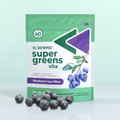
Blueberry Acai Bliss Vita
$49.99